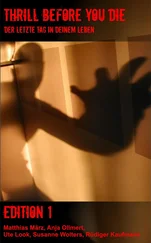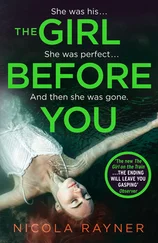“Injury like this? You’d be amazed how much you’re going to need,” Keenan said. “And we all want Spencer to have the very best care.”
“Besides, why should your assets have to cover the costs of something that wasn’t your fault and should never have happened in the first place?”
“I only want what’s best for my husband. And I understand you believe that either the gun or the gun’s design has a flaw. But there is another issue here. Another person,” Catherine said, and she took a sip of her drink. Cleaning fluid, she thought as the alcohol tumbled over her tongue and burned the back of her throat. This is cleaning fluid and I could use it to clean toilets. “I have to look out for my daughter. All that publicity, having to testify before strangers about what she did: None of that will do anything but make her feel worse. A lot worse. I think once Spencer and I really talk about this, he’ll agree. He’s not himself yet.”
Keenan sat back in his seat, crossed his legs, and wrapped his hands around his seersucker-clad knees. He looked like a college professor from Mississippi. “Oh, Spencer’s himself. He sees the opportunity here.”
“He sees an opportunity for your organization! Once he-”
“Your husband is a very dedicated man. Very dedicated.”
She wasn’t sure what to make of his repeating the words. Was this irony?
“And your little girl will be fine,” Paige was saying, “especially when she understands that this is all about punishing the company that disabled her daddy. Your little girl-”
“Charlotte is not a little girl. She is fast approaching thirteen.”
“All the better. All I meant was that this lawsuit will actually help Charlotte because it will show her that we don’t believe she’s responsible. This tragedy is the fault of a company that makes a product that’s inherently dangerous.”
“It’s a gun. Of course it’s dangerous!”
Paige leaned toward her and purred, “It’s a gun that-even when it functions properly-leaves a round in the chamber when you empty the magazine. And this one, it sounds like, was broken.”
“Catherine, we know you love animals, too,” Keenan added. “We know you love them as much as your husband. Don’t forget, this lawsuit will help FERAL with its efforts to educate people.”
“How could I forget that? It’s the whole reason you’re doing this!”
“We’re doing this because we care for Spencer. Frankly, the Spencer I work with would want to talk about the accident with Harry Smith or Ted Koppel-especially if the network had some talking head lawyer from the rifle’s manufacturer on-air to argue with him. No one is, forgive my choice of words, putting a gun to his head to make him do this.” He reached for his drink and his expression grew unreadable behind the glass, but she had the distinct sense that he was completely oblivious to what her family was suffering. Suddenly, despite having been acquainted with this man since her husband had joined FERAL, she realized that in fact she didn’t know him at all.
SARA GUESSED NO ONE had set foot on the badminton court since Saturday afternoon. That was four days ago now. It almost defied belief.
On the other side of the house she heard the lawn mower. Her mother-in-law, despite driving to Hanover to see Spencer-an hour-plus drive each way-playing nine holes of golf, and swimming laps across the roped-off section of Echo Lake, was now cutting the grass. Sara was quite sure that Nan was the only seventy-year-old woman she knew who actually pushed a lawn mower through the thick field grass that passed for lawn here in northern New England. Certainly her own mother and her own mother’s friends weren’t about to. When John had offered, she had shooed him away, reminding him that she cut it herself when he wasn’t here. In a desperate stab at normalcy, he had decided then to take Willow to the club for a swim.
She sat down now at the end of the chaise lounge on which her niece was curled up, half under a small quilt Nan had made some years earlier. The sky was a heavy gray sheet shielding the mountains, but it was really quite humid: She sensed that Charlotte’s need for the comforter had more to do with a yearning to cocoon than a craving for warmth. She stroked the child’s back.
“Can I get you something to eat?” she asked the girl. “It’s almost five. I was thinking of getting myself a glass of wine. Would you like a soda? A ginger ale?”
Charlotte shook her head and gnawed at the cuticle of her thumb. The tips of her fingers were flecked with dried blood and raw splinters of skin. Other than visiting her father, she hadn’t left the house today. She hadn’t even been willing to join her uncle and her cousin for a quick dip in the pool a half hour ago. Yesterday, when Sara had caught Charlotte and Willow sneaking into the men’s room to see the painted flies on the urinals, she had begun to hope that perhaps the girl was emerging from the shell of self-hatred and guilt that was enveloping her, but she understood now that wasn’t happening. Only briefly had the flies taken her mind off what she’d done, only briefly had even Willow-sweet, serene, magical Willow-been capable of soothing her grieving, disablingly penitent cousin. The child was little better now than she’d been Sunday morning, when she’d spent hours sobbing on her bed in her room. She had made a half effort at showering last night, but she’d forgotten to rinse the conditioner from her hair and so today it was greasy and flat and she looked like a waif.
“Really, nothing? Have you eaten anything at all today?”
“I’m not hungry.”
“You still should eat.”
“I don’t know. Grandmother probably would be afraid if I ate now it would spoil my dinner. She’d want me to wait.”
“I think most rules are off these days. If you want something, I’d be happy to bring it out to you. Some good bread and jam? A banana?”
She seemed to consider the notion before rejecting it. “No. But thank you, Aunt Sara. I think I’ll just wait till dinner.”
Her mother-in-law’s dog ambled around the corner and up the steps onto the porch. He smelled of the fields in which he’d been wandering, an aroma that was sweet and clean. Abstractedly, Charlotte dangled one of her hands and rubbed the top of his head when he nuzzled her fingers.
Finally, in a voice as neutral as Sara could make it, she turned to the subject that had brought her to her niece in the first place: “You know your father isn’t mad at you. Don’t you?”
The girl pressed the side of her face deep into the vinyl chaise pad and pulled the edge of the quilt up to her chin. “That only makes me feel worse. I wish he’d get pissed at me. I mean, I’m sure pissed at myself.”
“Oh, he doesn’t blame you at all.”
“Well, he should.”
“Not necessarily. Obviously you shouldn’t have been playing with the gun-”
“I know that!”
She continued placidly as if her niece hadn’t interrupted her. “But you didn’t know it was loaded. You didn’t mean to hurt anyone. You mustn’t lose sight of those two facts, Charlotte. We all make mistakes-small ones, huge ones-and I’ve always felt it’s important to distinguish between those mistakes we make when we mean to be hurtful and those we make simply because we’re human. This-what happened Saturday night-falls so completely into that latter category. You weren’t trying to be hurtful or to hurt anyone. Do you see the difference?”
The girl wiped at the corners of her eyes with her pinkies. She was a beautiful child, Sara thought, but almost overnight-less than four full days, really-her cheeks had begun to hollow. Despair, almost before their eyes, was making the girl appear sickly.
“Charlotte?”
Читать дальше











